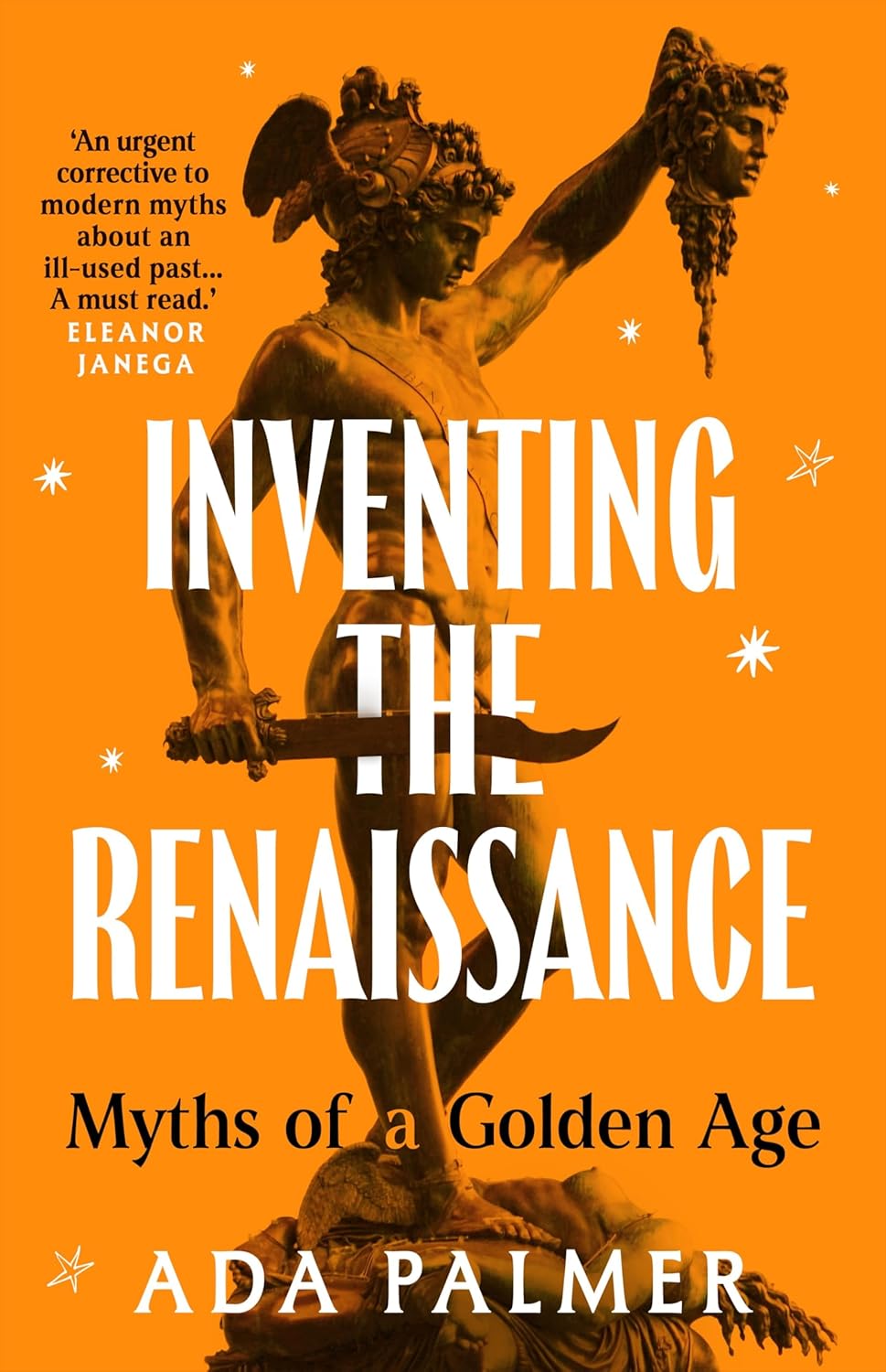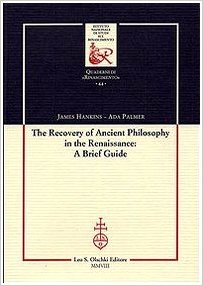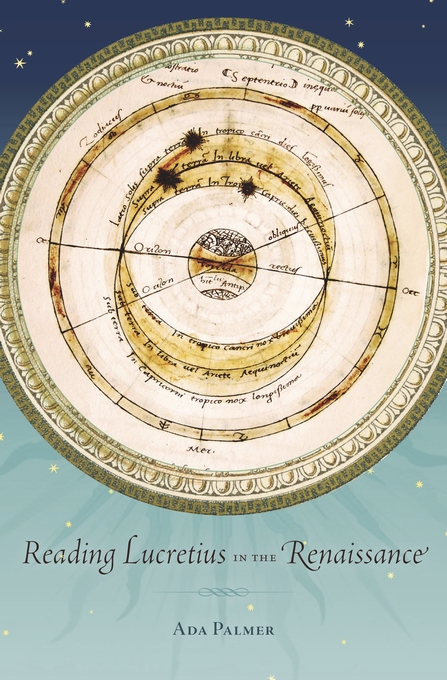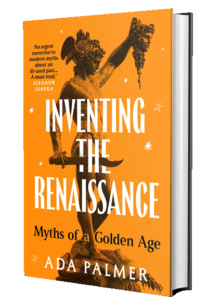Inventing the Renaissance
If you’ve enjoyed my ExUrbe blog and history stories, the book is here at last!
In the UK (order from Bookshop.uk, Blackwell’s, Amazon, Kobo, Kindle e-book or Audiobook.) In the USA (order from Bookshop.org, Barnes & Noble, Amazon, or for Nook, Kobo, or Kindle e-book or Audiobook.) If you order directly from UCPress’s website you can get a 30% discount by using the coupon UCPNEW. Or it’s always best to order from your favorite independent bookshop!
In Inventing the Renaissance, acclaimed historian Ada Palmer provides a fresh perspective on what makes this epoch so captivating. Her witty and irreverent journey through the fantasies historians have constructed about the period show how its legend derives more from later centuries’ mythmaking than from the often-grim reality of the period itself. She examines its defining figures and movements: the enduring legacy of Niccolò Machiavelli, the rediscovery of the classics, the rise of the Medici and fall of the Borgias, the astonishing artistic achievements of Michelangelo, Leonardo, and Cellini, the impact of the Inquisition, and the expansion of secular Humanism. Drawing on her popular blogs and writing with her characteristic energy and wit, Palmer presents the Renaissance as we have never seen it before. Colloquial, funny and brilliant, this is a work of deep scholarship that will make you alternately laugh and cry.




